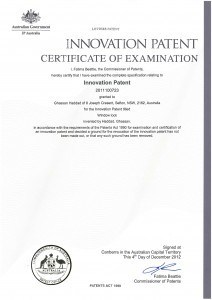Under NSW law, the Duties of an Employer (provided a contract of employment is established) includes
- the provision of workers’ entitlements under various laws and awards (both state and federal), and
- compliance with taxation/superannuation laws.
To comply with these duties (and avoid running foul of inspectors from the Department of Industrial Relations and civil litigation), the employer should (in law they must), inter alia:
- Obtain their own Australian Business Number (ABN).
- Obtain a policy of Workers compensation insurance. (It is recommended, but not compulsory, that employers obtain Public liability insurance against vicarious liability for the torts of employees.) Employers should display the policy of insurance, and maintain a record of any injuries or related incidents in the workplace.
- Obtain a Tax File Number (TFN) number and a TFN declaration from the worker, and supply the declaration to the Australian Taxation Office.
- Pay wages and other financial entitlements to the worker/emplyee as set out in the applicable award, Enterprise Bargaining Agreement (EBA), or Australian Workplace Agreement (AWA), or New Modern Award (NMA’s came into effect on 1/1/2010, replacing most State and Federal Awards, or National Employment Standards (NES now apply and provide minimum terms of employment for most employees in Australia.)
- Comply with all other requirements (as to loadings, allowances, conditions, union entitlements, etc), imposed by any industrial instrument, or award, or EB, AWA, NMA that applies to the contract of employment.
- Make provision for Superannuation for employees (except for employees who are aged over 70, or under 18 & working less than 30 hours/week or earning under $450/month). This first became compulsory in the result of a 1980’s national wage case, and has since been written into statute law. This is known as the Superannuation guarantee. Employers must contribute 9% of wages to a superannuation fund, but according to recent (2010) government announcements, this percentage will rise to 12%. From 2005 employees have a choice of fund.
- Make Leave provision (in compliance with the Annual Holidays Act NSW and the Long Service Leave Act). That is, set money aside to pay a worker during the worker’s paid holidays. (Note that the contract of employment has terms inserted into it by statute that prescribe: employer pays for annual holidays, and public holidays.
- Maintain Wage records. Most newsagencies sell a Zions Systems “Hours and Wages Record Book”, which is suitable for that purpose. Different size books are available for different sized workforces.
- Provide wage slips to employees, to accompany regular payments of wages, as required by the NSW Industrial Relations Act 1996.
- Make Pay As You Go (“PAYG”) tax deductions from wages. The ATO will supply blank PAYG Payment Summaries and also “PAYG Tables” to calculate the amount of the deduction. After the end of the financial year, the employer must supply a PAYG payment summary annual report to the ATO by 14 August.
- Forward the accumulated PAYG tax deductions to the Tax Office, together with the quarterly (?) BAS.
- Supply annual Payment Summaries to employees by 14 July, each year. Before PAYG Payment Summaries became the rule, employers supplied “group certificates” their employees. That terminology still persists and is commonly applied to the PAYG Payment Summaries. The employer also supplies a copy of the PAYG Payment Summary to the Tax Office.
- Keep records such as PAYG payment summary annual reports, and PAYG Payment Summaries, for 5 years.
- Give Reasonable notice prior to dismissal (see Dyer v Peverill (1979)2NTR1 below), or pay in lieu of notice.
- Provide a Separation Certificate to the worker, upon dismissal of the worker.
- Provide procedural fairness prior to any summary dismissal for “misconduct”.
- In order to comply with various obligations, an employers’ letter of dismissal [or final payment] could say: “Enclosed herewith is (a) final payslip, and (b) a cheque in the sum of XX being for pay due from XX To XX less PAYG. Accrued LSL, AL up to XX, XX days $20. Enclosed herewith is Certificate of Service. Enclose herewith is Employment separation certificate (saying: This is to certify that fred bloggs was an employee of ?? from ?? to XX.)”.
- Note: Regardless of what any award or written contract says, an employer is vulnerable to unfair dismissal claims (See Part 6 of the Industrial Relations Act 1996), and possibly claims under s.106 of the Industrial Relations Act 1996. (An employer is g generally vulnerable to intervention by the Industrial Relations Commission.)
- (Note that the Howard government amended Federal laws affecting unfair dismissals, and I think these laws don’t apply with workplaces with fewer than 15 employees.)
- Make provision for possible redundancy payments under s.119 of the Fair Work Act (Commonwealth).







